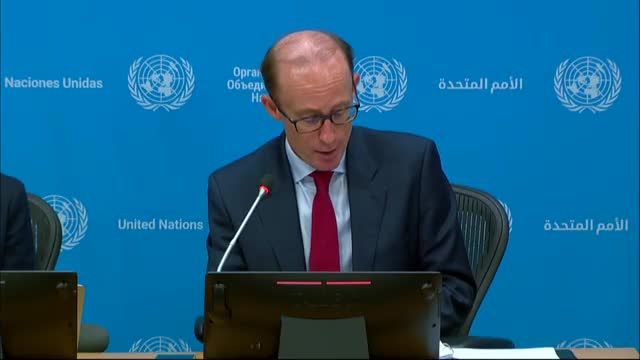UN rapporteur says Gaza ceasefire plan fails international-law standards and omits justice for victims
Get AI-powered insights, summaries, and transcripts
Subscribe
Summary
At a New York briefing, the UN special rapporteur on counterterrorism and human rights criticized a proposed Gaza ceasefire plan as inadequate under international law, saying it preserves occupation dynamics, isolates Gaza from Palestinian territory and omits mechanisms for justice and accountability.
Professor Ben Saul, the UN special rapporteur on counterterrorism and human rights, told reporters that a recently proposed Gaza ceasefire plan "does not meet minimum international law standards" and fails to address root causes of the conflict.
"It doesn't address the root causes of the conflict because it does not guarantee Palestinian self determination, independent statehood, and governance," Saul said. He added that the plan "substitutes one occupation with another" and treats Gaza "in isolation from the rest of the Palestinian territory," while leaving issues such as illegal settlements and borders unaddressed.
Saul criticized the plan for saying nothing about justice and accountability for victims of international crimes, arguing that "there can never be peace without international justice according to law or without recognizing the equal dignity, and respect, for Palestinians." He warned that failing to ensure accountability risks signaling to other states that atrocities may go unpunished and noted the broader danger of returning to "a scorched earth era" of colonial counterinsurgency.
He said the plan risks sidelining the United Nations and the International Court of Justice in collective-security responses and expressed concern that the plan could preserve conditions that lead to renewed violence.
Saul called for measures that include accountability and that situate Gaza within the broader framework of Palestinian rights and territory. He framed his remarks as part of his mandate reporting and urged states and international institutions to insist on justice mechanisms as part of any durable settlement.
The rapporteur's remarks were delivered at a briefing in New York and followed related comments he and his colleague made about threats to international justice and recent sanctions affecting actors connected to investigations.
